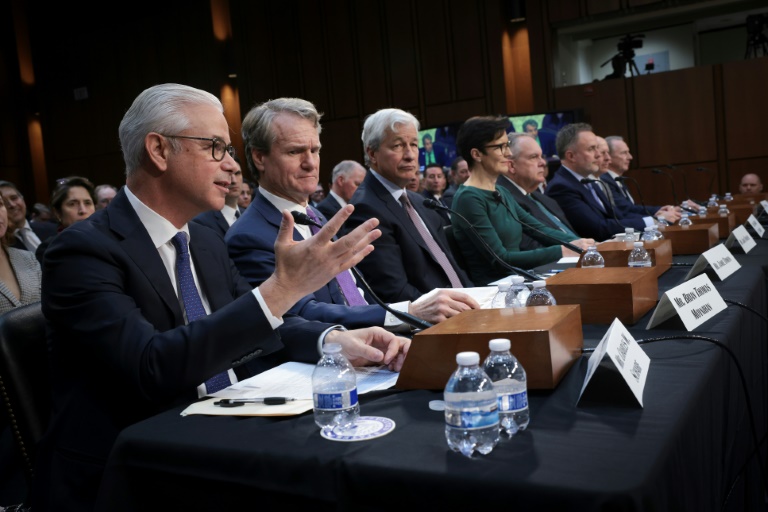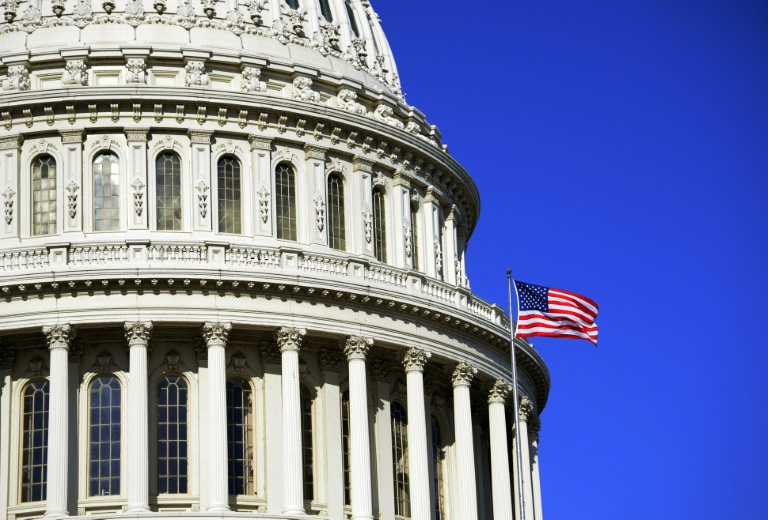AFP
Large US banks railed against new proposed capital requirements at a congressional hearing Wednesday, joining Senate Republicans in casting the measures as crimping loans to everyday Americans.
“This rule will make services so uneconomical, you will likely see two outcomes: many banks will simply stop offering certain products and services, and those that do will have to charge more for them just to make it worth the service,” said JPMorgan Chase Chief Executive Jamie Dimon.
The proposal, the Basel III Endgame rule developed in concert with international standards in response to the 2007-2009 financial crisis, would increase capital requirements by 20-25 percent on the largest banks, Dimon said in prepared remarks.
Senator Sherrod Brown, a Democrat from Ohio who chaired the annual oversight hearing, voiced skepticism over the complaints.
He argued the stricter capital requirements were needed to protect the bank system from another catastrophic meltdown, or from the recent bout of instability in midsized banks in March.
“Absolutely nothing in these rules would stop your banks from making loans to working families and small businesses,” Brown said.
“The reason banks might make fewer of these good loans in the future is the same reason we’ve been seeing less and less productive banking activity for years: it doesn’t make your banks as much money as the risky stuff. You would rather fund risky trading and derivatives bets than boring, bread-and-butter small business lending.”
Banking executives got a much more sympathetic ear from Republicans on the panel such as South Carolina Senator Tim Scott, who called Basel a “nightmare proposal” that “will put so much capital on the sidelines,” harming everyday Americans.






